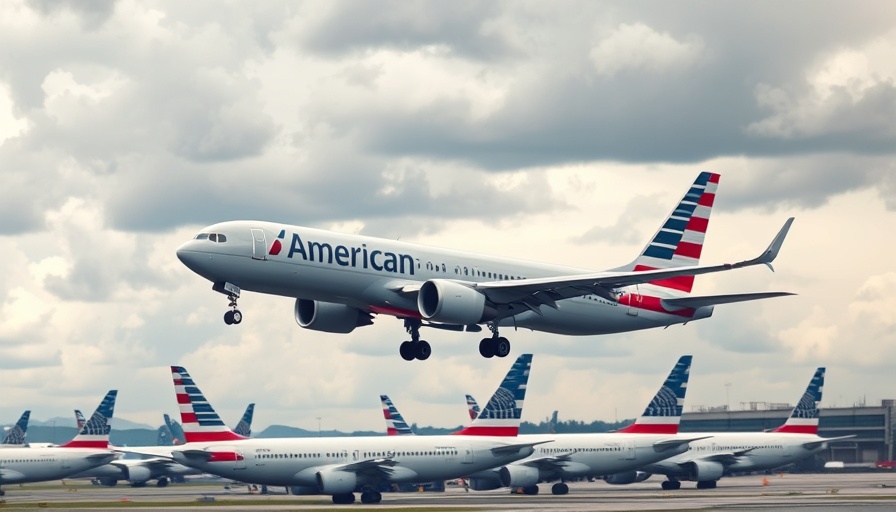
A Disturbing Incident in the Skies
In April 2024, a Sonoma County woman, Barbara Morgan, alleges she experienced a terrifying ordeal on an American Airlines redeye flight from San Francisco International Airport to Dallas-Fort Worth. According to her lawsuit filed in the San Francisco U.S. District Court, the incident began when she sat down in her middle seat, next to a man identified as Cherian Abraham. As soon as the cabin lights dimmed, Morgan claims the man began to rub against her, escalating quickly to unwanted physical contact that made her feel vulnerable and trapped.
Claims of Negligence and Victim Blaming
Amid the chaos, Morgan asserts that no airline staff intervened despite her loud pleas for help. The other passengers around her appeared to be either sleeping or distracted, making her feel isolated in her plight. In her distress, she endured what she describes as tremendous emotional turmoil for the remainder of her flight, apprehensive about escalating the situation or facing backlash from her assailant.
Upon landing, Morgan immediately reported the incidents to an American Airlines gate agent. Regrettably, instead of receiving support, she faced a tone of victim-blaming from the staff who questioned why she hadn't acted sooner—a reaction that highlights a disturbing trend in how victims of sexual harassment are often treated. Rather than facilitating immediate action, the agent dismissed her case, suggesting that Morgan file a complaint online.
Anonymous Response from the Airline
American Airlines' subsequent automated replies, including a message sent three days after her initial report indicating that corporate security was looking into the matter, did little to provide reassurance. The perceived lack of urgency from the airline might very well reflect a broader issue in how airline companies deal with allegations of sexual misconduct. It raises the question: How can passengers feel safe when airlines do not appear to take such allegations seriously?
Unraveling a Pattern of Behavior
Tragically, Morgan's situation is not an isolated one. Cherian Abraham, now facing charges in a separate case for similar allegations, illustrates a worrying trend regarding known sexual predators slipping through the cracks. The fact that he was able to board another flight post-incident underscores systemic failures. Morgan's lawsuit argues that American Airlines could have taken steps to prevent further incidents if they had acted on her report.
Broader Implications for Safety in Travel
This incident does not only reflect issues within American Airlines but exposes broader problems within the aviation industry as a whole. Air travel is supposed to be a safe space for all passengers, but as incidents of harassment and abuse continue to emerge, many wonder whether airlines are doing enough to protect their customers. Advocates for victims stress the importance of having clear protocols in place to support and investigate allegations of misconduct quickly and effectively, ensuring that victims are heard and perpetrators are held accountable.
Understanding the Victim's Perspective
Victim experiences are complicated, especially in environments like airplanes where escape is not an option. The challenges faced by Morgan during her ordeal bring to light significant emotional and psychological impacts. Victims might fear retribution, feel embarrassed to report such behavior publicly, or wonder whether staff will take them seriously. Morgan’s story serves as a powerful reminder of these struggles and the need for better training and resources for airline staff to handle complaints sensitively and effectively.
A Call for Accountability
As Morgan pursues justice through legal means, her story urges other victims of harassment to speak out. It underscores the critical need for accountability in the travel industry and an overhaul of how airlines manage safety and comfort for their passengers. We must push for reforms that prioritize passenger safety, ensuring that incidents like Morgan’s not only receive the attention they deserve but also lead to meaningful changes.
The responsibility lies heavily on airlines to create and maintain an environment where passengers feel safe and respected. This ongoing dialogue about harassment in public transport is necessary to foster a culture of zero tolerance against such behavior.
For anyone who has felt powerless in a similar situation, Morgan's legal battle can serve as a beacon of hope—a reminder that they are not alone in their struggles and that change is possible if individuals advocate for their rights and demand better from service providers.
 Add Row
Add Row  Add
Add 




 Add Row
Add Row  Add
Add 

Write A Comment